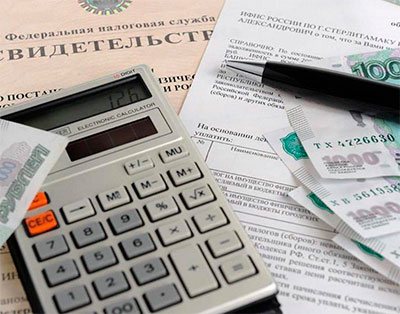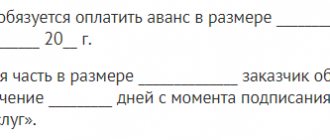Why register an apartment for a child?
Further, transactions for the purchase or sale of objects in this situation also have separate and important nuances. Yes, again in full compliance with Russian laws, paperwork for a minor owner is carried out as usual. Yes, a child under a certain age carries out all required actions exclusively through his legal representative. But at the same time, none of these operations can be performed without the appropriate approval of the guardianship authorities. It’s hardly worth explaining in detail to anyone how much nerves (and money) it takes to get such a piece of paper from municipal social protection committees, and how juvenile justice functions in general across the country.
We recommend reading: Register your country house
Can a minor be a homeowner?
Let's consider whether it is possible to register real estate to a minor. Being a full-fledged subject of civil law, a child can own both movable and immovable things. This rule is repeated in Art. 60 IC RF.
A child may have a share in an apartment or be the owner of an entire apartment, but the whole complexity of the issue lies in the limited right of a minor to carry out transactions with the registration or re-registration of housing, because he is only assigned the right to reside and use the residential premises (as if he were simply registered there ). He has no right to alienate the apartment on his own.
The difficulty lies in concluding a transaction through which the transfer of ownership in favor of the child will be carried out, because:
- You will need permission from the guardianship authorities to remove the minor from his previous place of residence (the new apartment that becomes his property must be equal or larger in area than the previous place of residence and must meet all the conditions in which the child must live);
- the transaction is subject to notarization;
- if a minor has reached the age of fourteen, then both parents must draw up a written permission for him to enter into a transaction and have it certified by a notary.
Important! Housing purchased with maternity capital must be purchased with a share allocated for each minor and parents.
At what age can property be transferred to it?
The age of the child does not matter in this matter. The differences lie in who signs the sales contract or other title document:
- children aged 14-18 years old enter into an agreement independently;
- For minors under 14 years of age, parents must sign.
Features of registering an apartment for a minor child
- Privatization. During privatization, a child registered in an apartment has the right to an equal share. If the parents notarize their shares in his favor, then he becomes its full owner.
- Buying a home. You can conclude a purchase and sale transaction. A minor family member becomes the owner of the entire apartment or part of it. If housing is purchased under the “maternity capital” program, then a mandatory requirement is to allocate a share in the property to all children.
- Giving. Any owner of residential or commercial real estate that is not burdened with debt can issue a deed of gift. Real estate donated to a close relative is not subject to personal tax (from 13% to 30%).
- Will. The testator can be any person, not just a close relative.
Tax
Without payment

There are 2 ways to avoid paying taxes:
- Having drawn up a gift agreement several times, in case of re-registration of an apartment in the name of relatives who are not among the close ones.
For example, if an uncle expresses a desire to give real estate to his nephew, then in order to avoid paying income tax, he will need to issue a deed of gift twice, for his brother, and then directly for his nephew. - By signing a fictitious purchase and sale agreement. You will not have to pay tax if the property has been owned for more than 5 years.
When should you transfer?
Only close relatives - parents, children, spouses, brothers, sisters - receive exemption from income tax (according to clause 18.1 of Article 217 of the Tax Code of the Russian Federation). In all other cases, personal income tax is paid in accordance with the general provisions of the Tax Code of the Russian Federation.
How does taxation work?
In order to calculate the amount of income tax, the total cost of the property must be multiplied by 13%.
Example : if a nephew gives his aunt an apartment with an estimated value of 1.5 million rubles, the tax amount will be 1,500,000 * 13% = 195 thousand rubles.
Who represents his interests?

In accordance with the norms of civil (Articles 26 and 28 of the Civil Code of the Russian Federation) and family (Article 64 of the RF IC) legislation, the interests of the child are represented by parents or adoptive parents, and in their absence, by guardians or trustees.
Parents automatically acquire the status of legal representatives from the moment the birth certificate is issued, on which their names are written. Adoptive parents also acquire this status from the moment the adoption certificate is issued.
If a child has no parents, guardianship or trusteeship is issued over him:
- A guardian is a person who has taken charge of a minor.
- Guardianship is issued for persons over 14 years of age.
To obtain one of these statuses you must:
- contact the guardianship and trusteeship authority;
- undergo an interview with representatives of the authority and submit a package of documents upon their request;
- obtain a certificate conferring the status of a guardian or trustee.
Without registration of guardianship or guardianship, grandparents, uncles and aunts, brothers and sisters or stepfathers and stepmothers cannot be considered representatives of the child, therefore, they do not have the right to enter into transactions on their behalf or give permission/prohibition for the acquisition of property.
Important! The absence of written consent of the legal representative entails the recognition of the transaction for the acquisition of an apartment as invalid.
When can you dispose of property?
Another important question arises: at what age can one own and conduct transactions with donated real estate?
Until the age of 14, housing is managed by legal representatives within the scope permitted by the state. Any actions are controlled by the guardianship and trusteeship authorities.
After the child turns 14 years old and until adulthood, the state allows transactions with housing, but with the consent of the trustees (parents, guardians, representatives).
A young citizen receives full right to dispose of property after he turns 18 years old . In some situations, exceptions are possible: the owner has the right to take procedural actions in the event of emancipation.
Emancipation is the process of a court recognizing a minor as legally competent. The court may take the teenager’s side if sufficient evidence is collected and presented to confirm his independence.
This happens when a young citizen is officially employed, has entrepreneurial activity, or has entered into a legal marriage.
When can he independently register rights and sign?
The procedure and independence of registration depends on the age of the minor and is established by the norms of civil legislation on the age of legal capacity.
Up to 14 years old

His legal representative acts on behalf of the minor:
- parent (including foster) or adoptive parent;
- guardian.
That is, the parent or guardian puts his signature, and a note is made in the title agreement that the agreement is concluded in favor of the minor.
From 14 to 17 inclusive
Upon receipt of a passport, the child becomes a partially capable person and has the right to enter into any transactions, including the purchase and sale of an apartment, independently. His signature is on all documents, but the agreement will require permission from the parents or guardians that it is being concluded with their permission.
Emancipation
Emancipation in accordance with Art. 27 of the Civil Code of the Russian Federation, a procedure is recognized as a result of which a minor who has reached the age of 16 is recognized as a fully capable person (i.e., parental permission will no longer be required to enter into any transactions).
To do this, the minor must:
- work under an employment contract;
- or be registered as an individual entrepreneur (with parental permission) and engage in entrepreneurial activities.
Reference! Permission for emancipation is given by the guardianship and trusteeship authority. If the parents are against it, but the minor insists on being recognized as fully capable, this issue is resolved in court.
From the moment a minor is recognized as emancipated, he has the right to enter into a contract for the purchase and sale of housing and become the owner independently, without the written permission of his legal representatives.
18 and older
From 00:00 hours after the day of the eighteenth birthday, a citizen is recognized as fully capable. You do not need permission from your parents to enter into a contract or other real estate transactions.
Advantages and disadvantages
Having a child own home has both pros and cons.
pros

- An apartment owned by a minor is not subject to division as joint property of spouses upon divorce of parents.
In accordance with Art. 60 the property of minor children is not included in the property of the parents, therefore, cannot be the object of division of property. If the child only owns a share, the division of such an apartment is carried out with the involvement of the guardianship and trusteeship authorities. The court makes a decision only taking into account the interests of the minor. - Such housing cannot be seized or sold as part of enforcement proceedings if the parents have a debt. The situation is similar to the previous one: the child’s property does not belong to the property of his parents.
- Receiving a tax deduction. The tax deduction can only be obtained after purchasing an apartment. The parents of a minor have a choice: receive the deduction on their own and transfer the money received to the child’s account, or wait until the child reaches adulthood and allow him to receive the deduction on his own.
Minuses
- Consent of the guardianship authority.Guardianship and trusteeship authorities do not always give permission to register real estate as the child’s property. Permission is given when the property:
- the area is equal to or larger than the housing in which the child previously lived;
has all the necessary means of communication;
- the apartment has been renovated, or the parents can prove their intentions to do it in the near future.
- Reluctance of buyers to purchase an apartment for a minor. Many buyers are afraid of difficulties in the face of guardianship authorities and the difficulty of deregistering a minor, so real estate remains on sale for a long time. The situation is the same with renting or renting.
Further alienation, rental of such an apartment, etc. is also carried out with the permission of the specified authority.
Under what conditions can a child become an owner?
There are several cases when a child can become the owner of a vehicle. The most popular of them:
- the car or its share was inherited by the child;
- the car was given to the child by his relatives;
- The child purchased the vehicle himself.
Photo by Pexels
Most often, parents register a vehicle for a minor child in order to save on fines: according to the law, a minor cannot be held administratively liable. Since most violations are detected using photo and video cameras, the resolution is issued to the owner of the car: the one in whose name the car is registered with the traffic police. But it is impossible to issue a decree for a minor. And such fines were sent to the trash bin.








